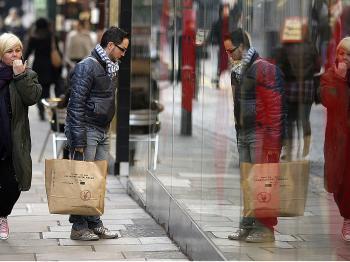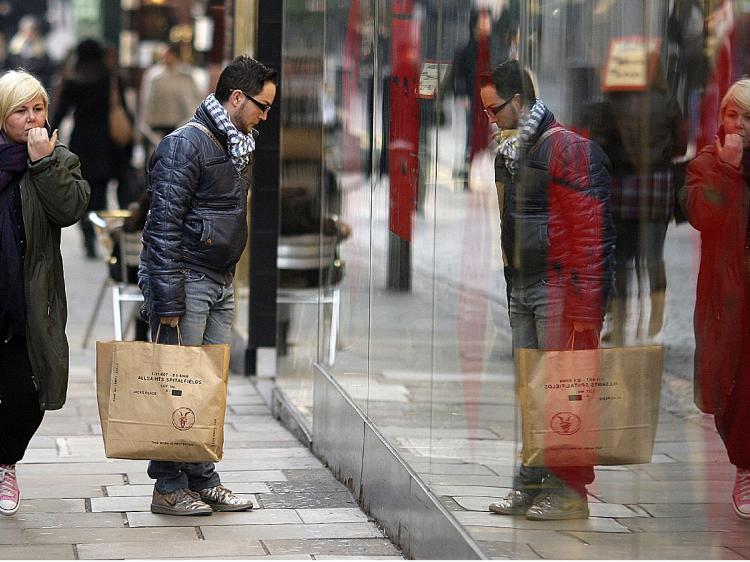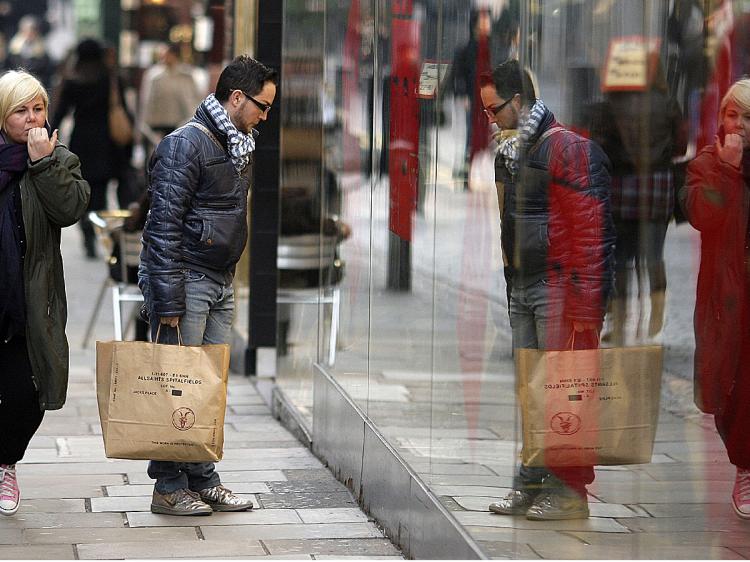LONDON—Britain has nosed out of recession, the last of the major developed countries in the world to do so. However, policy leaders say the country Britain still has a ways to go to before it can breath easy.
The Office for National Statistics (ONS) published its preliminary estimate for the fourth quarter of 2009 and showed that gross domestic product (GDP) increased 0.1 percent.
The figure set out on Jan. 26 is much lower than analysts expected. “The result of the test is that the average revision is not statistically different from zero,” the NSO states.
A broad measure of economic growth, GDP is generally defined as the market value of the goods and services produced by a country.
This particular figure brings to an end Britain’s worst recession since the Great Depression when GDP shrank by -6.2 percent.
Before the report, all political parties had put themselves behind the idea of austerity measures to pull the country out of the recession.
Nick Clegg, the Liberal Democrat leader told The Daily Telegraph in January 2009, “We’re entering into an age of austerity when all the political parties are going to have to have a rethink on public spending.”
David Cameron, leader of the Conservative Party, wants to have an emergency budget if his party is elected to government at the forthcoming general election.
Alistair Darling, the present chancellor, has told top public sector workers, nondepartmental public bodies, and the civil service that their salaries need to pass a “next-door neighbor” test. “If you can’t justify them to your next-door neighbor, you’ve probably got it wrong,” he said.
The report stated that the distribution, hotels and restaurants sector was the largest contributor to the positive growth in this quarter with 0.4 percent compared with an increase of 0.7 percent in the previous quarter. Motor trades and retail made the largest contribution to the increase.
The Federation of Small Businesses said in its manifesto “Small Business, Big Vote,” released at the Houses of Parliament on the same day as the NSO report: “Between 2002 and 2007, over 84 percent of new jobs were created by small businesses and, in spite of the recession, 57 percent would like to employ in the future, creating at least 800,000 new jobs.”
It says that £10-12 billion (US$16.1-$19.4 billion) are spent every year on government-funded business support. “However, only 5 percent of this goes to the micro-business sector, which accounts for 95 percent of all businesses together with the lion’s share of innovation and job creation.
“If government is seeking to support the drivers of economic growth, it is currently missing its target and wasting a lot of money in the process.”
The preliminary estimate of GDP for the first quarter of 2010 will be published by the NSO on April 23, 2010.
The Office for National Statistics (ONS) published its preliminary estimate for the fourth quarter of 2009 and showed that gross domestic product (GDP) increased 0.1 percent.
The figure set out on Jan. 26 is much lower than analysts expected. “The result of the test is that the average revision is not statistically different from zero,” the NSO states.
A broad measure of economic growth, GDP is generally defined as the market value of the goods and services produced by a country.
This particular figure brings to an end Britain’s worst recession since the Great Depression when GDP shrank by -6.2 percent.
Before the report, all political parties had put themselves behind the idea of austerity measures to pull the country out of the recession.
Nick Clegg, the Liberal Democrat leader told The Daily Telegraph in January 2009, “We’re entering into an age of austerity when all the political parties are going to have to have a rethink on public spending.”
David Cameron, leader of the Conservative Party, wants to have an emergency budget if his party is elected to government at the forthcoming general election.
Alistair Darling, the present chancellor, has told top public sector workers, nondepartmental public bodies, and the civil service that their salaries need to pass a “next-door neighbor” test. “If you can’t justify them to your next-door neighbor, you’ve probably got it wrong,” he said.
The report stated that the distribution, hotels and restaurants sector was the largest contributor to the positive growth in this quarter with 0.4 percent compared with an increase of 0.7 percent in the previous quarter. Motor trades and retail made the largest contribution to the increase.
The Federation of Small Businesses said in its manifesto “Small Business, Big Vote,” released at the Houses of Parliament on the same day as the NSO report: “Between 2002 and 2007, over 84 percent of new jobs were created by small businesses and, in spite of the recession, 57 percent would like to employ in the future, creating at least 800,000 new jobs.”
It says that £10-12 billion (US$16.1-$19.4 billion) are spent every year on government-funded business support. “However, only 5 percent of this goes to the micro-business sector, which accounts for 95 percent of all businesses together with the lion’s share of innovation and job creation.
“If government is seeking to support the drivers of economic growth, it is currently missing its target and wasting a lot of money in the process.”
The preliminary estimate of GDP for the first quarter of 2010 will be published by the NSO on April 23, 2010.






